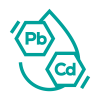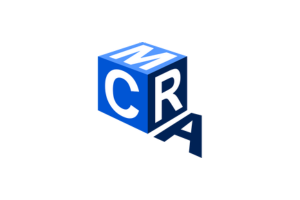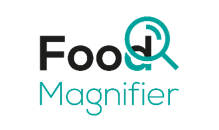The “Total Diet Studies” demonstrator

Welcome to the world of Total Diet Studies (TDS), where comprehensive insights into our dietary habits come to life. TDSs are an invaluable tool in understanding the overall nutritional quality and safety of our food supply. By analysing a representative sample of various foods and beverages consumed within a population, TDS provide a holistic perspective on the entire diet. With a focus on assessing exposure to nutrients, additives, residues or contaminants from food production, these studies play a crucial role in shaping public health policies, ensuring consumer safety, and promoting healthy eating patterns.
The Total Diet Studies demonstrator aimed at developping e-services to enable scientific and non-scientific users to evaluate and visualise chemical food safety data. Two tools based on TDS data were developped or updated:
- MCRA is a risk assessment tool for profesionnals (researchers, risk assessors).
- FoodMagnifier is a visualisation app for non-professionals (consumers, risk managers).
Discover them below!
MCRA (Monte Carlo Risk Assessment)
Chemical exposure, hazard and risk assessment tool for professionals
 In our daily lives, we encounter various chemicals through food. Assessing the associated risks to human health depends on understanding the effects of these chemicals and how they interact. MCRA (Monte Carlo Risk Assessment) is a user-friendly web-based platform that offers diverse models to evaluate health risks in specific populations and scenarios.
In our daily lives, we encounter various chemicals through food. Assessing the associated risks to human health depends on understanding the effects of these chemicals and how they interact. MCRA (Monte Carlo Risk Assessment) is a user-friendly web-based platform that offers diverse models to evaluate health risks in specific populations and scenarios.
MCRA aims to facilitate the standardization of TDS data, promoting international risk assessment and fostering a user group philosophy to encourage data reuse. By making data more accessible and transparent, MCRA enables easier sharing with food operators, leading to practical impact in real-life situations.
Discover the power of MCRA as it advances chemical risk assessment, supports data standardization, and facilitates collaboration among stakeholders. Together, we can pave the way for improved risk management and a safer environment for everyone.
This Demonstrator was developed based on Total Diet Study data from the Netherlands, Germany and Belgium, with the following study goals:
- Probabilistic risk assessment for exposure of German children to methylmercury (BfR/WUR)
- Probabilistic cumulative exposure assessment for Dutch children to pesticides (RIVM/WUR)
- Probabilistic risk assessment for exposure of Belgian children to nickel (Ughent/WUR)
Target: professionals (researchers, risk assessors and TDS experts)
MCRA is available for registered stakeholders. Anyone can request an account by filling in the registration form at mcra.rivm.nl.
RVIM can provide support if the user:
- is part of a TDS center network,
- uses European Food Safety Authority (EFSA) templates/standards,
- and makes their data open
Training material
A series of lectures and hands-on trainings on TDS was also delivered to industry and academia. The training material is now available (on YouTube and on myfnscloud), empowering the next generation of risk assessors:
- Lecture 1: Total Diet Studies
- Lecture 2: Risk Assessment based on TDS
- Lecture 3: TDS applied in Belgium
- Hands-on training: MCRA for professonials
MCRA was developed in the EuroMix project (2015-2019) then updated and brought to the Cloud by the FNS-cloud project, through a partnership between EFSA, RIVM and WUR (2015-2025). The provision of data and development of use cases for this demonstrator was supported by the German Federal Institute for Risk Assessment (BfR) and University of Ghent (UGhent).
Food Magnifier
Unveiling the Secrets of Your Food
 Curious minds often wonder about the contents of their food. What substances are present? Are there traces of aluminum, mercury, or other elements? Food Magnifier is an user-friendly online app designed to empower non-professionals with valuable information about both desirable and undesirable substances found in foods.
Curious minds often wonder about the contents of their food. What substances are present? Are there traces of aluminum, mercury, or other elements? Food Magnifier is an user-friendly online app designed to empower non-professionals with valuable information about both desirable and undesirable substances found in foods.
Available in English and German, Food Magnifier offers an intuitive interface to search by substances (to find their corresponding contents in various foods) and by food (to find what substances they may contain). It allows for convenient comparisons between food items. Background information includes comprehensive substance descriptions, population-based exposure assessments, health-based reference values, and insights into the contribution of different food groups to dietary exposure.
Data reflect average substance levels in foods as they are consumed. It’s essential to note that Food Magnifier does not provide generalized statements regarding the nutritional or health value of foods. It is not intended to assess personalised intake or exposure to substances, nor does it offer recommendations on consumption frequencies of specific foods.
This Demonstrator was developed based on reliable TDS data on aluminum, cadmium, copper, lead, manganese and mercury from the German pilot TDS conducted in the “TDS-Exposure” project (www.tds-exposure.eu). The app objective is to describe and visualise complex occurrence data on substances in food and make them easily accessible for non-professionals. FoodMagnifier is intended to be used in the future as a tool for other TDS data owners to make their data accessible.
An online tutorial demonstrates two possible user scenarios (available on myfnscloud).
Target: non-professionals (e.g. consumers or risk managers)
FoodMagnifier is available at foodmagnifier.eu and can be found in the FNSCloud Tools Catalogue.
FoodMagnifier was designed and developed by Premotec GmbH with substantive and content support provided by the German Federal Institute for Risk Assessment (BfR).
